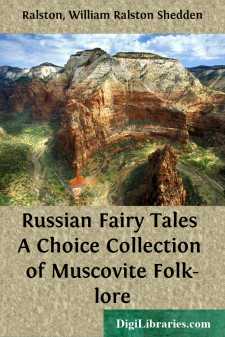Categories
- Antiques & Collectibles 13
- Architecture 36
- Art 48
- Bibles 22
- Biography & Autobiography 815
- Body, Mind & Spirit 144
- Business & Economics 28
- Children's Books 18
- Children's Fiction 14
- Computers 4
- Cooking 94
- Crafts & Hobbies 4
- Drama 346
- Education 58
- Family & Relationships 59
- Fiction 11834
- Games 19
- Gardening 17
- Health & Fitness 34
- History 1378
- House & Home 1
- Humor 147
- Juvenile Fiction 1873
- Juvenile Nonfiction 202
- Language Arts & Disciplines 89
- Law 16
- Literary Collections 686
- Literary Criticism 179
- Mathematics 13
- Medical 41
- Music 40
- Nature 179
- Non-Classifiable 1768
- Performing Arts 7
- Periodicals 1453
- Philosophy 65
- Photography 2
- Poetry 896
- Political Science 203
- Psychology 44
- Reference 154
- Religion 515
- Science 126
- Self-Help 85
- Social Science 83
- Sports & Recreation 34
- Study Aids 3
- Technology & Engineering 59
- Transportation 23
- Travel 463
- True Crime 29
Our website is made possible by displaying online advertisements to our visitors.
Please consider supporting us by disabling your ad blocker.
Russian Fairy Tales A Choice Collection of Muscovite Folk-lore
Categories:
Description:
Excerpt
PREFACE.
The stories contained in the following pages are taken from the collections published by Afanasief, Khudyakof, Erlenvein, and Chudinsky. The South-Russian collections of Kulish and Rudchenko I have been able to use but little, there being no complete dictionary available of the dialect, or rather the language, in which they are written. Of these works that of Afanasief is by far the most important, extending to nearly 3,000 pages, and containing 332 distinct stories—of many of which several variants are given, sometimes as many as five. Khudyakof’s collection contains 122 skazkas—as the Russian folk-tales are called—Erlenvein’s 41, and Chudinsky’s 31. Afanasief has also published a separate volume, containing 33 “legends,” and he has inserted a great number of stories of various kinds in his “Poetic views of the Old Slavonians about Nature,” a work to which I have had constant recourse.
From the stories contained in what may be called the “chap-book literature” of Russia, I have made but few extracts. It may, however, be as well to say a few words about them. There is a Russian word lub, diminutive lubok, meaning the soft bark of the lime tree, which at one time was used instead of paper. The popular tales which were current in former days were at first printed on sheets or strips of this substance, whence the term lubochnuiya came to be given to all such productions of the cheap press, even after paper had taken the place of bark.
The stories which have thus been preserved have no small interest of their own, but they cannot be considered as fair illustrations of Russian folk-lore, for their compilers in many cases took them from any sources to which they had access, whether eastern or western, merely adapting what they borrowed to Russian forms of thought and speech. Through some such process, for instance, seem to have passed the very popular Russian stories of Eruslan Lazarevich and of Bova Korolevich. They have often been quoted as “creations of the Slavonic mind,” but there seems to be no reason for doubting that they are merely Russian adaptations, the first of the adventures of the Persian Rustem, the second of those of the Italian Buovo di Antona, our Sir Bevis of Hampton. The editors of these “chap-book skazkas” belonged to the pre-scientific period, and had a purely commercial object in view. Their stories were intended simply to sell.
A German version of seventeen of these “chap-book tales,” to which was prefixed an introduction by Jacob Grimm, was published some forty years ago, and has been translated into English. Somewhat later, also, appeared a German version of twelve more of these tales.
Of late years several articles have appeared in some of the German periodicals, giving accounts or translations of some of the Russian Popular Tales. But no thorough investigation of them appeared in print, out of Russia, until the publication last year of the erudite work on “Zoological Mythology” by Professor Angelo de Gubernatis....



